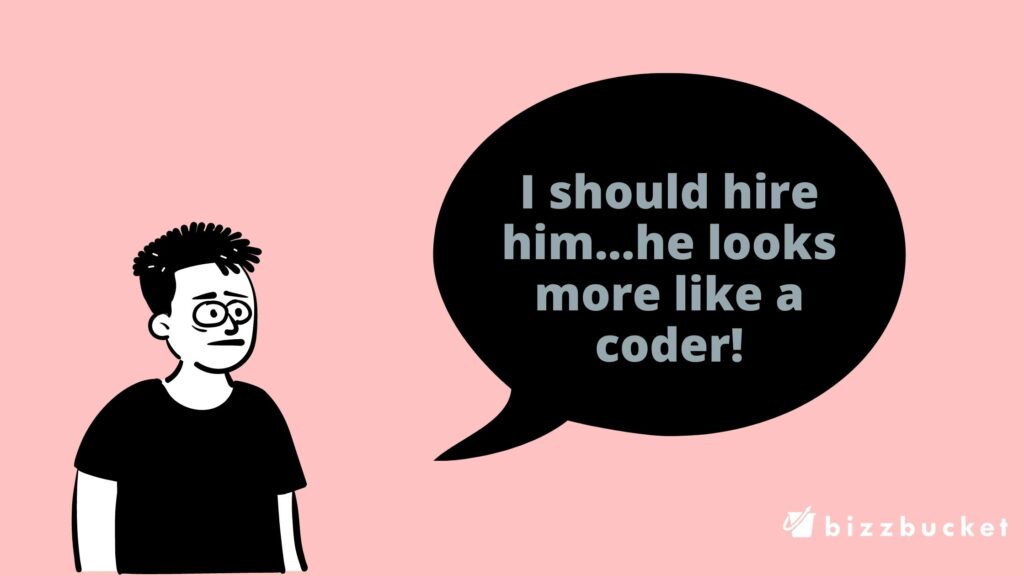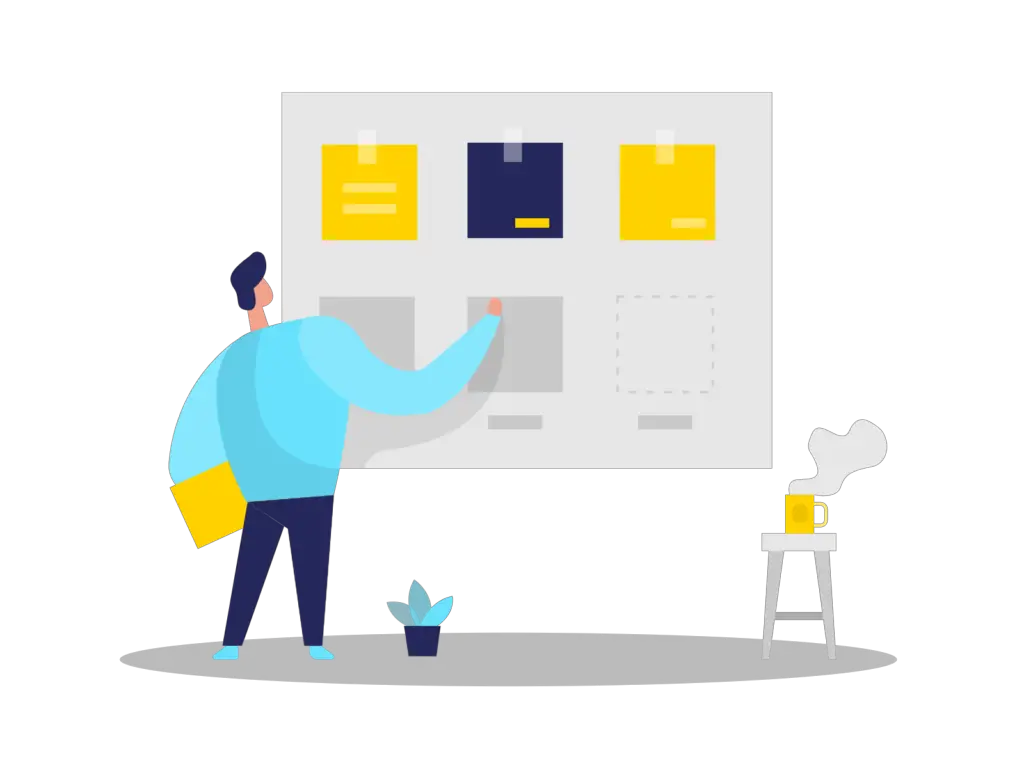We human beings are often guilty of making quick decisions that may not always be the right decisions. This could be because our inherent biases impair our decision-making. When faced with an uncertain event, we often rely on mental shortcuts to arrive at a quick decision.
We do so by making judgments by comparing the current scenario with something that we have already seen or experienced. This way, we fall victim to the single most impactful cognitive bias, “Representative Heuristic”.
It affects our critical thinking; we jump to conclusions and make bad decisions. It affects various aspects of life, from the business, economy, to health and education.
Index:
What is Representativeness heuristic bias?
Representativeness heuristic bias is a common information processing bias in problem-solving. It is characterized by short-cuts to reach a conclusion or decision, which may not be optimal or correct.
This method is widely used for making quick decisions when working with large or complicated data or information, as humans tend to look for quick decisions based on readily available facts and attributes. Representativeness bias is the reason why we create stereotypes.
Our brain categorizes things, events, and people into different blocks based on their features. We find something similar, and we jump to a conclusion based on our beliefs.

When making decisions, we don’t always have the time or resources to compare all the information we have. So, we often use mental short-cuts to arrive at conclusions.
The similarity of events and objects confuses our thought process regarding the probability of an outcome, and we make the mistake of assuming things to be similar.
Representativeness heuristic estimates the likelihood of a result based upon comparing a past event or an existing prototype in our head. But the drawback with it is, people often overestimate the similarities between two events or things.
Why does it happen?
There are several reasons why we use representativeness when making a decision. Some of these are:
- The instinct to conserve mental resources:
Humans have limited mental resources but have plenty of decisions to make every day. Therefore to save our cognitive resources, we rely on heuristics to make decisions quickly and efficiently.
- Relying on past events and stereotypes:
Making decisions based on representativeness involves comparing objects or situations to events and mental prototypes that we already have in our minds. These prototypes or categories are often based on past experiences.
- Overestimating similarity:
We often fail to realize that things and events may not be as similar as they appear to be. Just because events and things are representative of something we had experienced or encountered before does not mean that the current or future event or object will be the same.
Understanding Representativeness Heuristics and business:
Professional analysts in any given industry use various tricks and tools such as intelligent guesswork, trial, and error, past formulas, elimination, etc. to arrive at conclusions. But innovation and the advent of new technology have changed their work in many ways.
With data and information are now available at the fingertips, certain activities have become obsolete. Since this data is very detailed and can be shared easily, investors and business professionals find themselves working with large volumes of complex data.
Now when such a person is faced with a decision based on the data at their disposal, they will either take a lot of time going through the same or use Heuristics to deal with complex data and come up with a solution with limited time and resources.
Even though the Heuristics method will facilitate simpler, faster, and timely decisions. There are instances when using this approach may lead to bias and errors in decisions as the final decision may not be the most accurate or best solution.
For example, an investor imitates the investment pattern of a successful investment manager and invests in stocks of XYZ company. By doing so, he is saving time and energy which he would have otherwise spent in researching and analyzing various information.
Now, this investor, based on the reputation of the successful investment manager and the past performance of the company, will hope that the decisions of the successful investment managers will help him earn them profits, but this may not always be the case.
Many successful companies that may see a rise in their stock prices may also experience a stock plunge in a few days.
How does it impact business?
By now, we have understood that representative heuristic bias may cause more harm than do good. It may impact your business/startup in the following ways:
- Decision-making:
When making quick decisions and not considering all the data and information, you are likely to make a wrong decision. Sometimes not paying attention to single minute detail can cause a significant problem.
Therefore, basing current or future decisions on past experience and shortcut methods will lead to bad and inaccurate decision-making.
- Recruitment and team building:
A vital decision that any business person or manager will ever take is recruiting the right people in their team. However, if we have already formed an opinion on people based on our experience, we may be judging them without knowing or appreciating their qualifications and capabilities.
Not every curly-haired man with glasses is a technology or science geek, and not every beautiful girl with a chirpy voice a comparatively less knowledgeable. Therefore stereotyping can lead to bad decisions in recruiting a suitable candidate and building a solid team.
We should recruit employees based on their qualifications, not what we assume they are capable of doing.
- Management:
How will any manager work effectively and address a situation if they don’t understand all its aspects? Simply because something similar has happened in the past does not mean that a similar course of action will be effective and will lead to the same results as it did the previous time.
The key to effective management lies in understanding the situation and making a reasoned decision, not a quick decision.
- Marketing and promotion:
Marketing and promotions play a crucial role in deciding the success or failure of a product or a business. If your marketing and promotion strategy is not based on reasoned and fact-based analysis, your marketing strategy will not likely captivate the audience or help your business.
Therefore avoid quick results when coming up with a marketing plan, rather go through data while taking inspiration from past performance.
Protecting against the Representativeness Heuristic:
When running businesses, either new or old, owners and managers have to make multiple decisions with limited information and time constraints. Compound this with the brain’s cognitive biases; a person is likely to make a wrong decision.
The first step in the right direction will be to be aware of such biases and tendencies is essential to tackle them.
Understanding Representativeness Heuristic is an important step to improve decision-making skills. Some strategies to protect against Representativeness Heuristic as a business owner are:
- Writing down the reasoning behind significant decisions and their outcomes, either good or bad.
- Rely more on data and data science to make decisions not just on the previous decisions.
- Try to store every decision data in the company database, so that it can act as a basis for future better decisions.
Removing the heuristic is difficult; it’s inherent. But owners and managers can take active steps to protect themselves and their businesses from this bias and future bad decisions.
Companies should make hiring, marketing, and other decisions more on the lines of data Science not just based on certain biases.
Do Share Your Thoughts:
Do tell us all your thoughts in the comments section below, we look forward to reading all the comments in the section below.
Also, do check useful Startup Resources and Tools below and do join our newsletter 📰 for free for more interesting Business Case Studies 💰, Startup Insights 🚀, and Startup founders podcast 🎙️ delivered to your inbox every Sunday morning.
Do follow us:
Related Articles:
- What is the Availability Heuristic and how does it impacts your business?
- What is a Representative heuristic and how does it impacts your business?
- Status Quo Bias: How it impacts your business?
- What is Sunk Cost Fallacy and how does it impact your business?
- Disposition effect: Why it matters in business?
- Licensing effect: How it impact businesses?
- Halo effect: Why it matters in business?
- Fundamental Attribution Error: Why it matters in business?
What is Representativeness heuristic ?
Representativeness heuristic bias is a common information processing bias in problem-solving. It is characterized by short-cuts to reach a conclusion or decision, which may not be optimal or correct.
Whats the example of Representativeness heuristic?
Representativeness bias is the reason why we create stereotypes. eg. Judging people by looks based on certain previous stereotypes in mind.



